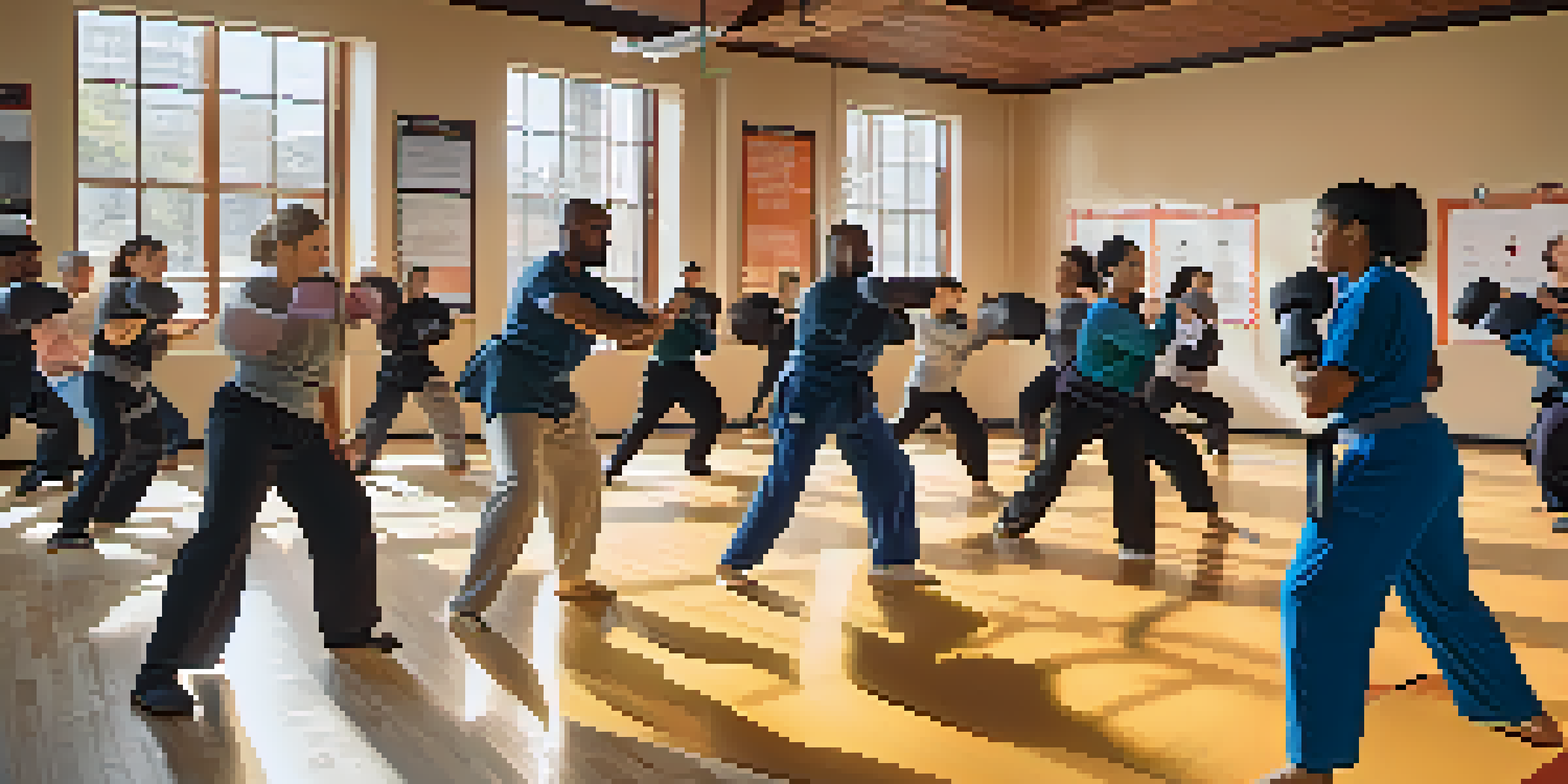The Role of Gender in Self Defense Across Cultures

Understanding Self Defense: A Cultural Perspective
Self-defense is not just about physical techniques; it’s deeply rooted in cultural norms and values. Different societies have varying perceptions of self-defense, influenced by their history, laws, and social structures. For instance, in some cultures, self-defense is seen as a fundamental right, while in others, it may be viewed as a sign of aggression. Recognizing these cultural nuances is essential for understanding how self-defense is approached globally.
Historical Context: Gender Roles in Self Defense
Historically, gender roles have shaped how individuals engage in self-defense. In many cultures, men are often seen as protectors, while women are expected to be more passive. This dichotomy influences the development of self-defense strategies that cater to these roles. For example, martial arts practices often emphasize strength for men, while women may be taught techniques that focus on evasion and escape.
Cultural Influences on Self Defense
Self-defense practices vary globally, shaped by cultural norms and historical contexts.
Women’s Empowerment and Self Defense Training
In recent years, there’s been a significant shift towards empowering women through self-defense training. Programs designed for women not only teach physical techniques but also build confidence and assertiveness. This empowerment is essential in cultures where women’s rights may be limited. By learning self-defense, women are taking a stand against violence and asserting their right to personal safety.
Men and Self Defense: Challenging Traditional Norms
While men have historically been viewed as defenders, there's a growing conversation about vulnerability and emotional expression. Many men are now seeking self-defense training not only for physical safety but also to challenge societal expectations of masculinity. This shift encourages men to embrace a broader understanding of strength, which includes emotional resilience and the ability to seek help when needed.
Empowering Women Through Training
Recent shifts in self-defense training focus on empowering women, enhancing their confidence and safety.
Cultural Variations: Self Defense Practices Worldwide
Self-defense practices vary widely around the globe, shaped by cultural beliefs and societal norms. For instance, in Japan, traditional martial arts like Aikido emphasize harmony and resolution over confrontation. In contrast, Western styles may focus more on aggressive defense strategies. Understanding these variations can provide insight into how different cultures prioritize personal safety and conflict resolution.
Legal Aspects: Gender and Self Defense Laws
The legal framework surrounding self-defense also reflects gender dynamics. In some regions, laws may favor male defendants in cases of self-defense, leading to disparities in how justice is served. Women may face additional challenges when proving their need for self-defense, particularly in cultures where domestic violence is stigmatized. It’s crucial to analyze these legal aspects to understand the barriers individuals face in asserting their right to defend themselves.
Challenging Gender Norms in Defense
There's a growing conversation around men embracing vulnerability and redefining strength in self-defense.
Education and Awareness: Bridging the Gender Gap
Education plays a key role in bridging the gender gap in self-defense awareness. Schools and community programs that promote self-defense can help dismantle stereotypes and encourage participation from all genders. By fostering an inclusive environment, these initiatives can empower individuals to learn essential skills for personal safety. This education is vital in fostering a culture of respect and understanding around self-defense.
The Future of Self Defense: Gender Inclusivity
Looking ahead, the future of self-defense training must embrace gender inclusivity. As societies evolve, so too should the approaches to self-defense that reflect our diverse communities. This includes creating programs that acknowledge the unique challenges faced by different genders and promoting techniques that are accessible to everyone. By fostering inclusivity in self-defense, we can create a safer environment for all individuals.